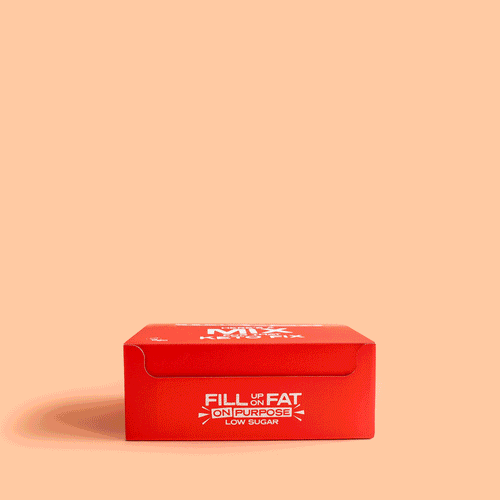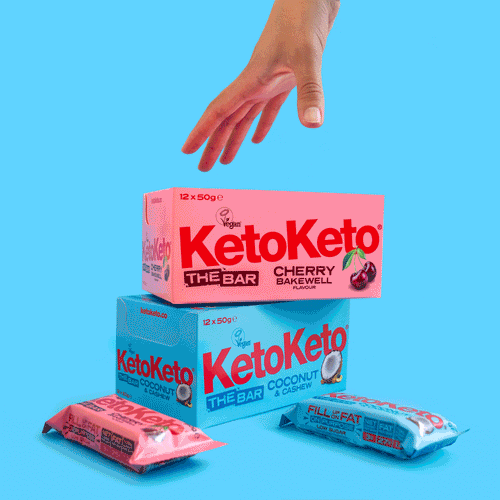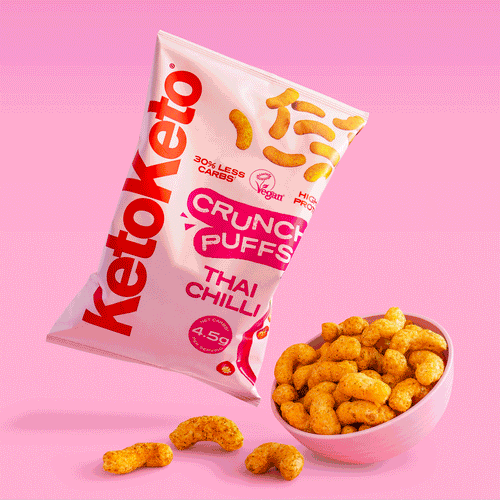Usually we think of inflammation as a negative thing we’d rather stay clear of, especially where it relates to our health. We’re aware too much inflammation causes pain and illness - it’s the explanation behind almost every prevalent disease that hinders people today.
But what exactly is inflammation and why does it pose a risk to our health? Can it be reduced or even healed altogether? Research has shown eating specific foods can have a significant impact on inflammation and its contribution to disease. These are meaningful findings that have far-reaching consequences for those suffering with long-term inflammation-related disease.
Is there a seemingly miraculous cure, and could it be as simple as changing your diet?
Is Inflammation A Problem?
Inflammation is not usually a bad thing - it’s a normal and important process in our bodies. Sprained your ankle or been sneezed on lately? Your body will have reacted with an inflammatory response, and you’ll be glad it did - without it injuries would worsen and simple infections could prove fatal.
It doesn’t matter if you’ve experienced an injury or encountered a virus, the process is the same. Our immune system increases blood flow and sends a troop of white blood cells to the affected area, to remove any unwanted intruders or toxins. You experience this reaction as swelling, redness, warmth, bruising and/or discomfort.
This type of inflammation is acute, necessary and welcome. But like too much of anything, there is another type of inflammation that’s systemic and problematic - chronic inflammation. Rather than preserving health, chronic inflammation destroys it. If you want to optimise your wellbeing and feel like the best version of you, any chronic inflammation must be halted and reversed.
What’s So Bad About Chronic Inflammation?
Inflammation becomes an issue when it’s long-lived, unnecessary and puts your body under strain; weakening systems and damaging tissues. When our bodies continue to activate the inflammatory response, long after potential toxins have disappeared, or without them ever being present in the first place, our bodies operate in a consistent state of high-alert. This triggered state uses up essential metabolic resources for long periods of time, resulting in fatigue and injury.
Inflammation of the chronic kind isn’t short lived - by definition it lasts months, years or even a lifetime. Often it progresses covertly, without a single warning sign until extensive deterioration shows up in the form of disease. Some of the most common conditions associated with chronic inflammation include:
- High Blood Pressure
- High Cholesterol
- Kidney Disease
- Various Cancers
- Depression
- Neurodegenerative Disorders (like Alzheimers)
- Autoimmune Disorders
- Osteoporosis
- Fatty Liver Disease
How Can We Prevent Chronic Inflammation?
As with all health problems, to prevent them we must know what caused them. There are varying opinions among scientists about what begins a prolonged period of inflammation. Some researchers say chronic inflammation happens in response to unwanted substances entering the body, such as environmental toxins, pollution or even excess fat cells. But there is little understanding as to why the body would continue an inflammatory response long after a potential threat has disappeared.
Nonetheless, researchers have identified a number of common factors associated with chronic inflammation, and they’re all a side-effect of modern living:
Diet
Foods high in saturated fats, trans fats and refined sugar are associated with increased inflammation. The good news is, we have control over the food we put into our mouths, so this can be pretty easy and quick to correct.
Excess Weight
Carrying too much fat, especially around our abdominal organs, produces pro-inflammatory chemicals. Again, this is often caused by lifestyle choices; attention to our diet and a focus on our physical activity can reverse the inflammatory problems associated with obesity.
Stress
Psychological stress has been shown to affect levels of inflammation. Increased levels of stress can trigger an inflammatory response in the same way a physical toxin can. This one isn’t so quick and simple to put right, but with some dedication to self-care routines - including the way you eat, it’s possible to offset the damage caused by stress.
Lack of Sleep
Those who suffer with irregular sleep have shown higher markers of inflammation compared to people enjoying a regular 8 hours of shut-eye a night. Our diet and stress levels intertwine: a high-carb, sugar-loaded diet combined with high levels of stress, have a negative impact on the amount of snooze time we get on a regular basis. Thankfully, it’s possible to restore healthy sleep patterns with some intentional routines and a healthy diet .
Can Keto Help Chronic Inflammation?
The food we fuel our bodies with plays a critical role in our health, and certainly has been shown to influence the levels of inflammation present. An anti-inflammatory diet includes:
- Avocados
- Olive Oil and Coconut Oil
- Leafy greens e.g. spinach, chard, kale
- Brassicas e.g. cauliflower and broccoli
- Low fructose fruits such as berries
- Fatty fish like salmon, sardines and tuna
- Nuts such as almonds and walnuts
These foods are all celebrated on the Ketogenic diet. Keto is about fueling your body in the right way - burning fat and using ketones for fuel rather than converting carbohydrates into glucose for energy.
Keto isn’t about elimination or deprivation, it’s about reorganising what and why you eat - so you can enjoy great health, plenty of energy and maintain balance in your body. Chronic inflammation is a sign your body is unstable, running at full speed and unable to recuperate. Eventually this manifests as disease.
Change in diet has demonstrated significant improvement to inflammatory diseases and overall health. Recent research found the Keto diet reduces chronic inflammation by tackling it from more than one angle. Keto improves mitochondrial function and decreases oxidative stress. Not only that, ketones produced from following a low-carb, high-fat diet, also stimulate the antioxidant system and inhibit various inflammatory processes.
Essentially, the Keto diet stops the degenerative effect of inflammatory foods and sparks healing through activating antioxidant systems. These are invaluable findings for the vast number of people affected by inflammatory-induced illness, and the health care professionals seeking to treat them.
Not only can the food you choose to put on your plate halt inflammatory disease in its tracks, but the incredible regenerative nature of your body means that you can also start to heal and renew the damage caused by inflammation in the past. If you’re looking for a cure for your chronic inflammation, it's likely you’ll find it with a high-fat, low-carb keto diet.






